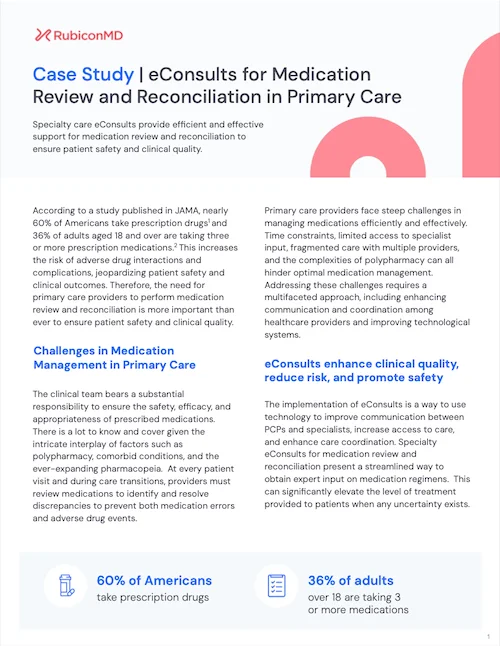eConsult Transcript
PCP submission
73 year old female patient with a 10+ year history of depression, anxiety and difficulty sleeping. Consult is to review medications and see if her current regimen is safe for her age and for best control of insomnia secondary to anxiety and depression. She currently takes Venlafaxine XR 75 mg 3 tablets daily and doxepin 10 mg/mL concentrate – Take 0.6 mL with 4 oz water orally every night for sleep disorder. My question is primarily about Doxepin as I have never prescribed this. She cannot cite the exact cause or event which precipitated mood disorder. Somewhat poor historian, but with review of past medical records (Patient is new to me), it looks as if she was previously on Lexapro, Trazodone and Amitriptyline – likely not all at the same time. She feels well and sleeps better on her current regimen of Venlafaxine and Doxepin and denies side effects. Denies suicidal/homicidal ideation.
- Is it safe and beneficial to keep her on her current regimen?
- If Doxepin is not covered by her insurance, what else would you recommend? Mirtazapine comes to mind, but open to hearing other options as well.
Specialist response
Hi. Thank you for sharing your consult. Great questions.
- This article summarizes the use of antidepressants in the elderly and recommends SSRIs such as Sertraline, Citalopram, and Escitalopram as first line treatment in the elderly, followed by Venlafaxine or Mirtazapine: https://wchh.onlinelibrary.wiley.com/doi/pdf/10.1002/psb.1654 This article reviews age related changes in antidepressant pharmacokinetics: https://www.ncbi.nlm.nih.gov/pmc/articles/PMC3384538/ Here is an AAFP article about serotonin syndrome: https://www.aafp.org/afp/2010/0501/p1139.pdf
Since she’s stable on this combination, it’s reasonable to continue it. You need to monitor for elevated BP, prolonged QTc, Hyponatremia, fall risk, and bleeding risk. Typically it isn’t recommended to use an SNRI and TCA simultaneously because of the serotonin syndrome risk. However, since she has been on it for awhile, it’s reasonable to continue them.
- You might ask her to monitor her sleep with this diary: http://yoursleep.aasmnet.org/pdf/sleepdiary.pdf This sleep education might be helpful: http://sleepeducation.org/treatment-therapy/cognitive-behavioral-therapy Reviewing sleep hygiene is essential: https://www.sleepfoundation.org/articles/sleep-hygiene “ Strong sleep hygiene means having both a bedroom environment and daily routines that promote consistent, uninterrupted sleep. Keeping a stable sleep schedule, making your bedroom comfortable and free of disruptions, following a relaxing pre-bed routine, and building healthy habits during the day can all contribute to ideal sleep hygiene.” This is the Practice Guideline for Insomnia by the American Academy of Sleep Medicine: https://jcsm.aasm.org/doi/10.5664/jcsm.6470#d3e976 Mirtazapine is reasonable.
The guideline states that the same recommendations are applied to the elderly except with dose reductions, except for Belsomra. You might trial Belsomra 5mg qhs x 1 week and then increase to 10mg qhs, if indicated. Morning grogginess and vivid dreams are side effects to monitor. Please feel free to contact me with additional questions!
